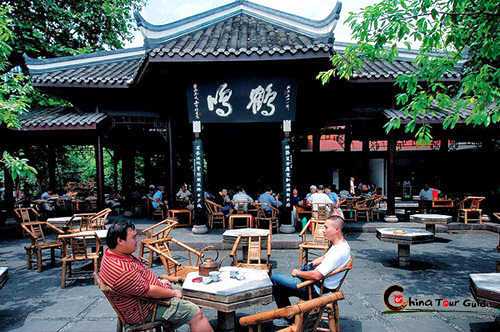MILAN — Tea shop drinks have experienced remarkable growth in both value and volume over the last couple of years in China. Indeed, according to Mintel, the growth of this market hit a peak at 14% in 2017-18, reaching a total retail value of RMB48.5 billion in 2018.
At the same time, the market saw a surge in volume between 2017-18, growing at 4% to reach an estimated 1,293 million litres in 2018. While the lure of the tea shop remains strong, according to Mintel estimates, the market will see steady but slower growth in the coming years, growing at a CAGR (compound annual growth rate) of 3% from 2019-23.
Belle Wang, Food and Drink Analyst, Mintel China Reports, said:
“China’s tea shop market experienced tremendous growth in retail value in the last five years and reached a peak in 2018, largely due to an upgrade of ingredients and increase in material costs which caused the selling price of tea shop drinks to treble. However, slower growth is expected for the market in the next five years as there is little space for further unit price growth and an increasingly competitive marketplace. While the market is set to slow down, the tea shops category still has potential to grow further, with more opportunities for new entrants.”
The online consumption channel
One area of opportunity lies in online purchasing. Mintel research shows that nearly all (95%) of tea shop consumers in China have bought their drink in physical stores while just over two-thirds (69%) have ordered their drinks online. With offline channels, one third (32%) of all tea shop consumers are heavy users, while in online channels, only a quarter of them (25%) are heavy users.
“One of the reasons why there are less heavy users purchasing from online channels could be the high delivery fee that comes with ordering online, and in most cases, the delivery price line is not met if people only buy one drink at any one time. This indicates a significant opportunity for online tea shops to introduce desserts or bakery products in their menu offering, which can provide these heavy users a solution to reach the minimum price required for delivery while also increasing revenue.”
Setting up shop
Some 80% of tea shop drink consumers enjoy their tea drinks when out shopping and over three in five (62%) have them while hanging out with friends. Overall, most consumers in China think that tea shops are a good meeting spot, as seven in 10 (69%) say that they like to take a rest or meet with friends in tea shops. Highlighting their popularity, just a fifth (20%) indicate that they do not relax or meet up with friends in tea shops.
While internet-famous tea shops have been all the rage in China, Mintel reveals that more than half (56%) of urban Chinese consumers don’t think it is worth queueing for two hours for an internet-famous tea drink/shop. On the flipside, just 28% think it is worth queueing for two hours for such tea shops.
“Today, you are more likely to see a tea shop than a convenience store in shopping malls. The layout strategy of opening up tea shops every few metres from each other is one of the main drivers behind tea shop drinks becoming a great companion for those out shopping. In addition, shopping malls are no longer just for shopping, but are also seen as places for consumers to hang out. With shopping and hanging out with friends as main occasions for buying tea shop drinks, setting up tea shops as meeting or resting points fulfils the needs of many Chinese consumers. Furthermore, internet-famous tea shops are also opening up outlets in shopping malls. Internet-famous tea shops in shopping malls tend to have attractive interiors and ambiences that amp up the consumer experience, which helps counter the feeling of queuing for too long among consumers. They provide customers with an ideal place to sit, rest and hang out midway shopping.”
Strong nut milk potential
In all, milk tea tops the list of popular tea shop drinks with 53% of tea shop drink consumers having had it in the last three months*. This is followed by fresh juice drinks (eg made with fresh fruits without milk or tea) (48%) and milk drinks (eg no tea added) (34%).
Finally, Mintel highlights the potential for nut milk drinks to enjoy strong growth despite having a comparatively low penetration rate of 22% among Chinese consumers. In fact, female consumers are more likely to queue for nut milk drinks as over two in five (41%) female consumers who have drunk nut milk drinks from tea shops agree that it is worth queueing for two hours.
“While still at a nascent stage in China, nut milk drinks are set to grow in popularity based on factors like taste and nutrition. Using nut milk instead of animal milk in milk tea or other milk-based drinks could bring more health benefits and develop new tastes at the same time. Our research also reflects an opportunity for nut milk drinks among women, many of whom are more likely to queue up for hours for these drinks. Tea shop brands can take advantage of this opportunity by introducing nut milk drink options with female-oriented claims, like highlighting antioxidant and anti-ageing properties.”
*3,175 urban Chinese consumers aged 18-49 who have bought tea shop drinks in the last 3 months, August 2018

















